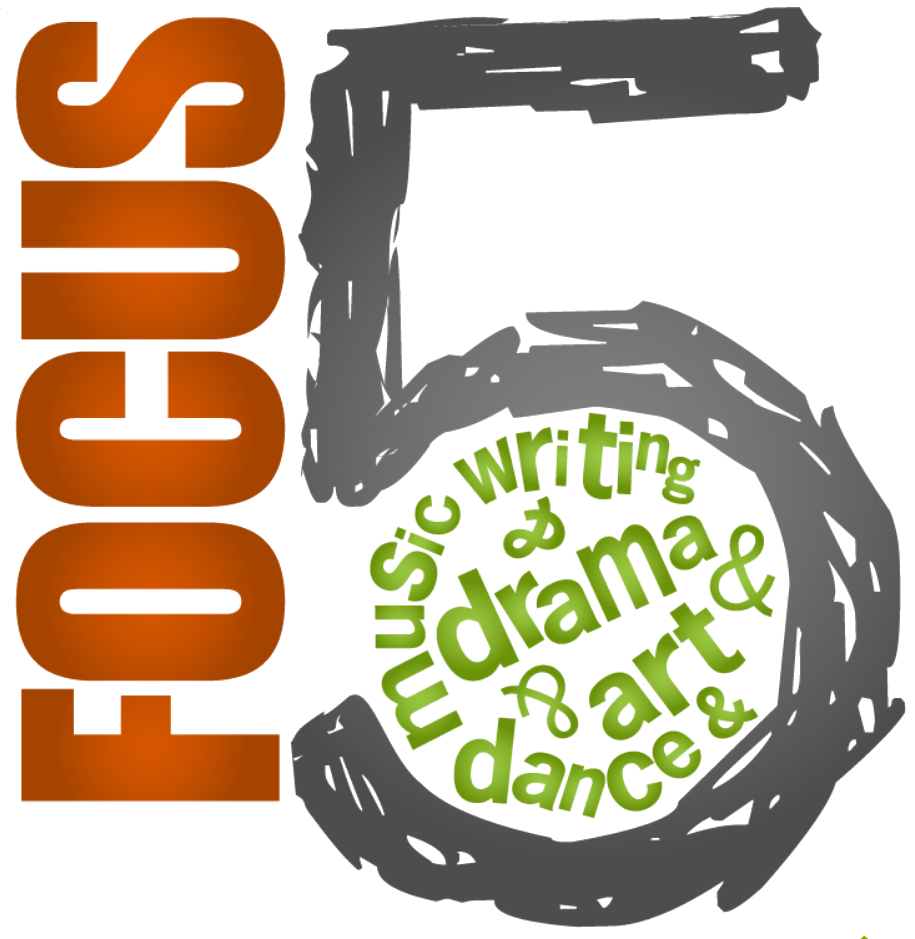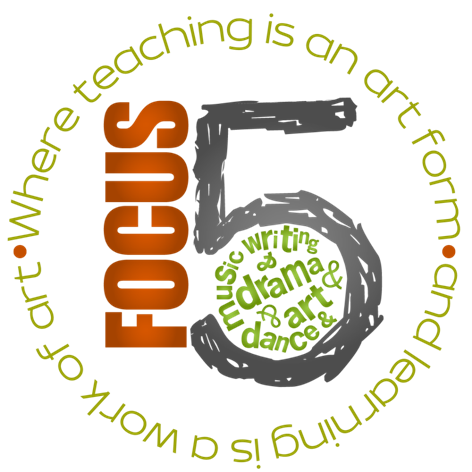
Professional Development for Teachers
Courses and Workshops Specifically Designed for Teachers.
Focus 5 offers both ONLINE and IN-PERSON courses and workshops. With a team of highly-skilled consultants, multiple art forms, and various curriculum connections, we are a leader in the field of arts integration.
Courses & Workshops for Teachers
ONLINE Asynchronous Courses
Choose from over 20 self-paced online modules focusing on various art forms and multiple curriculum connections.
Foundational Workshops
These arts-integrated workshops establish and deepen understandings of the underpinnings of arts integration and create a solid foundation for schools and programs.
Classroom Culture Workshops
These arts-integrated workshops focus on drama-based strategies that can be integrated in multiple curricular areas.
DRAMA Workshops
Arts-integrated workshops that focus on drama-based strategies that can be integrated in multiple curricular areas.
VISUAL ART Workshops
Arts-integrated workshops that focus on visual arts-based strategies that can be integrated in multiple curricular areas.
MUSIC Workshops
Arts-integrated workshops that focus on music-based strategies that can be integrated in multiple curricular areas.
DANCE Workshops
Arts-integrated workshops that focus on dance-based strategies that can be integrated in multiple curricular areas.
PUPPETRY Workshops
Arts-integrated workshops that focus on puppetry-based strategies that can be integrated in multiple curricular areas.
POETRY Workshops
Arts-integrated workshops that focus on poetry-based strategies that can be integrated in multiple curricular areas.
Assessment & Documentation Workshops
These workshops focus on ways to assess and/or document the process and product of arts-integrated learning.
Foundational workshops
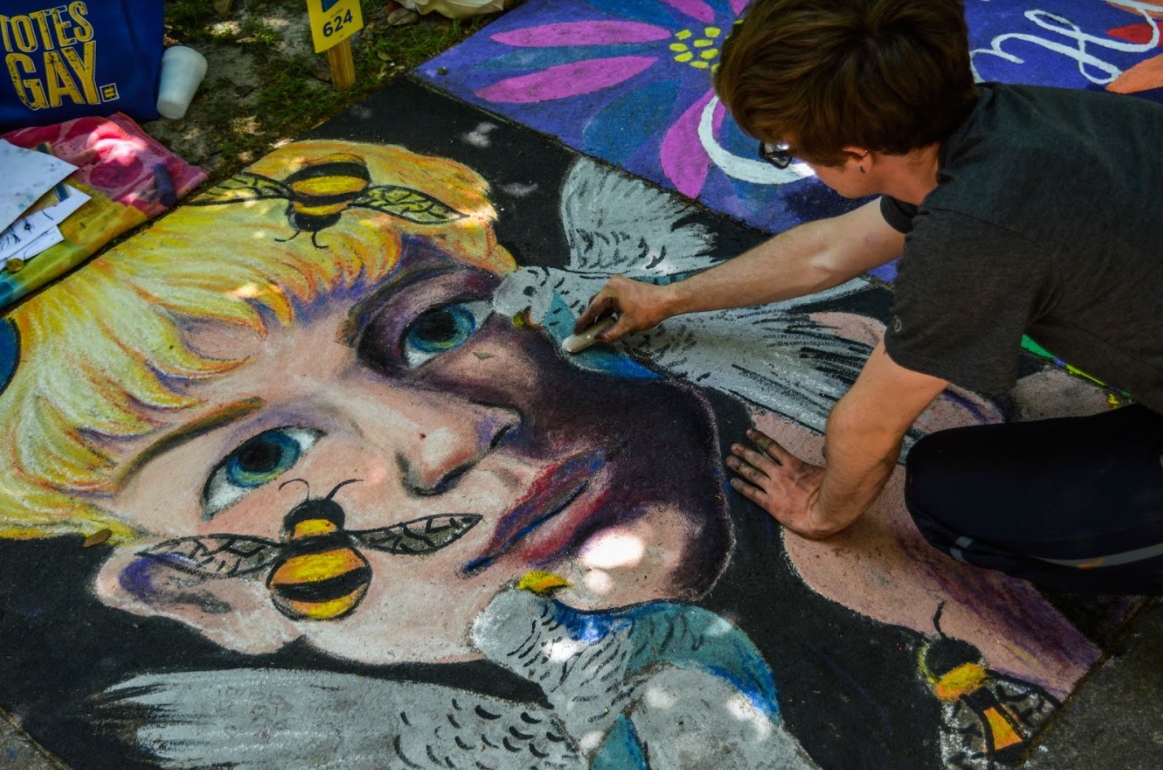
Arts Integration: The What and Why
For Teachers of Grades 2-12
with Sean Layne
This session unpacks the definition of art integration and uncovers the characteristics of quality integration that align with best practice in education. Join the co-author of the Kennedy Center’s internationally adopted definition for this informative session.

Facilitating Arts Integrated Learning
For Administrators, Arts Specialists, Teachers | 3 Hours
All grade levels
Leading arts integration lessons requires an instructional style that is often different from other teaching. What does facilitating arts integration require from teachers? This workshop explores several big ideas about effective ways to facilitate the creative process – which is the hallmark of arts integration. What roles do teachers play at various points in the process—when and how do they lead, when and how do they guide? Participate in an example lesson to see how the big ideas are put into practice.

Foundational Principles of an Arts Integrated Classroom
For Administrators, Arts Specialists, Teachers | 3 Hours
All grade levels
Whether you are bringing dance, drama, visual arts or music into your classroom—arts integrated instruction relies on 6 learning principles that create the foundation for effective instruction. In this session, participate in a model lesson, and consider the alignment of these principles with your approach to teaching.

Making Connections: Exploring a Process for Creating Arts-Integrated Topics
For Administrators, Arts Specialists, Teachers | 2 Hours
All grade levels
Creating arts integrated topics remains a skill teachers continually ask about and want to develop. What makes a “good fit” between an arts focus and another subject area? How can teachers uncover the possibilities? Designed by the authors of the Kennedy Center’s definition of arts integration, Lynne Silverstein and Sean Layne have put their minds together again to create a helpful, user-friendly process for creating arts integration connections.
Classroom Culture Workshops

ACTING RIGHT: Building a Cooperative, Collaborative, Creative Classroom Community Through Drama
For Teachers | 3 Hours
Grades K-8
This workshop takes the foundational elements of acting such as concentration, cooperation, and collaboration and creates a structured process, which can become the basis for effective classroom management every day. This engaging, step-by-step approach empowers students to take ownership of and be responsible for their own behavior. Learn how to help students build the skills necessary to establish a sense of self-control, accountability, and teambuilding in your classroom.
This workshop is recommended for any classroom based in active, social, cooperative learning. Check out all of the incredible add-on resources below!
Overview Videos...
Actor's Toolbox Podcast
Listen to a podcast setting up the procedure of the Actor’s Toolbox. This podcast is not intended to be played for students. This procedure should be delivered by the teacher.

*RESOURCES for Acting Right
Purchase items below to complement the 'Acting Right' workshop above to use in your own classroom!
These books, CD’s and visual tools complement the “Acting Right” arts-integrated teaching method. With these tools you can create incredible sessions with your students to build a cooperative, collaborative, creative classroom community.
For Teachers That Have Attended the Workshop
Looking for the “Actor’s Toolbox” music to accompany Acting Right? You can download it HERE if you’ve attended this workshop.
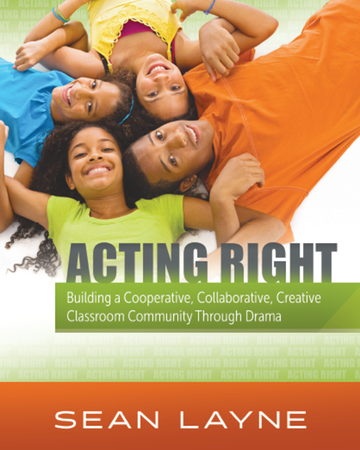
Acting Right Book
$28
Includes shipping!
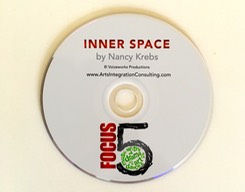
Acting Right Book + Actor's Toolbox Music (CD)
$31
Includes shipping!
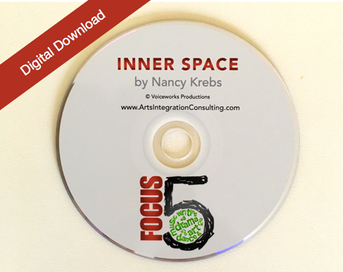
Actor’s Toolbox Music
-Digital Download-
$3
Includes shipping!
NOTE: If you already attended this workshop scroll up to see instructions to download the music.
If not and wish to purchase, after payment please click RETURN TO MERCHANT at the bottom of the PayPal page, which will open a page for dowloading the music file.
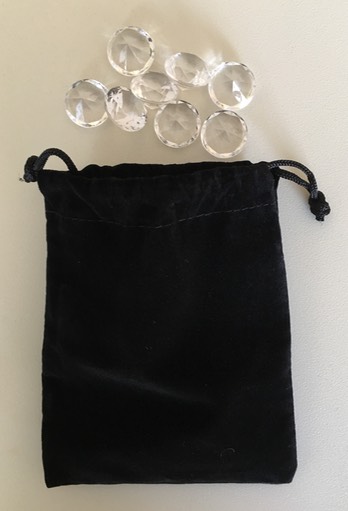
Jewels of Concentration
(35 per bag)
$12
Includes shipping!
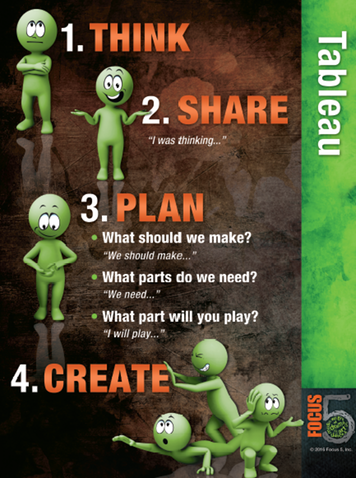
Tableau Poster 11x17
$13
Includes shipping!
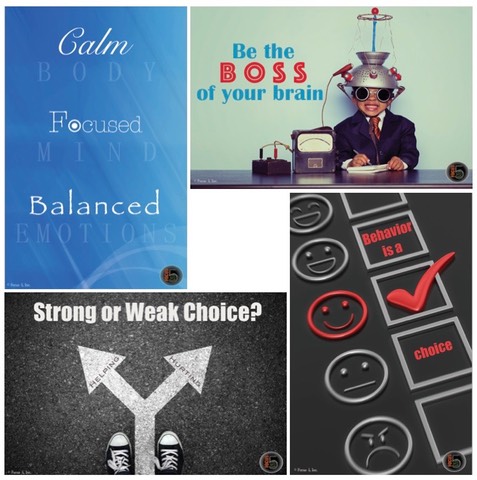
Classroom Posters
$25
Includes shipping!
Set of 4 classroom posters with key concepts and phrases from the Acting Right work.
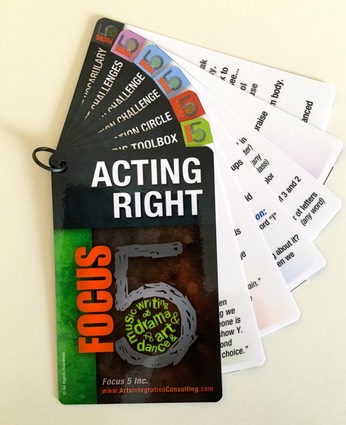
Acting Right Card Set
$17
Includes shipping!
Once the initial Acting Right procedures are in place, this card set acts as a helpful guide as you facilitate the strategies with your students.
The set includes 7 laminated 4×6 cards. Each card takes one of the Acting Right strategies and lists its procedure, teacher role, and goal. The backside of each card lists reflection questions to ask students after participating in the strategy. An additional card lists statements and questions to use for classroom management.
Available in Spanish also!
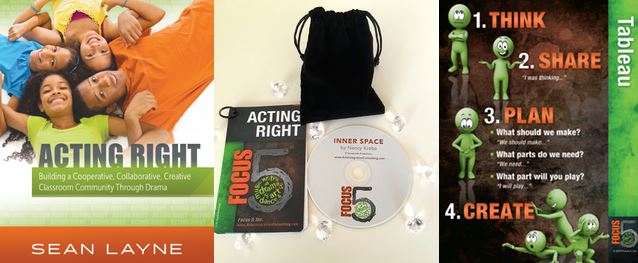
Acting Right Complete Set
$60
Includes shipping!
Includes Acting Right book, music digital download, Jewels of Concentration, Facilitator Cards, Tableau Poster
Note: after payment please click RETURN TO MERCHANT at the bottom of the PayPal page, which will open a page for downloading the music file.

Developing Concentration and Cooperation Skills Through Drama
For Teachers | 3 Hours
Grades 2-5
From circle time to morning meetings, teachers are in search of ways to build a mutually supportive community with their students. This workshop shares strategies to incorporate drama improvisation games into the classroom to strengthen development of the important social-emotional skills of concentration and cooperation.
This workshop is led by Kassie Misiewicz.
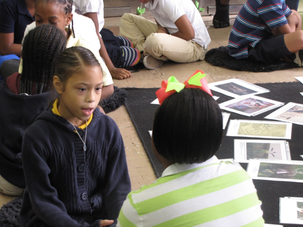
Academic Conversations in the Arts Integrated Classroom
For Administrators, Arts Specialists, Teachers | 2-33 Hours
All grade levels
An arts integrated approach to teaching is grounded in collaborative, social, cooperative learning. The heart of this approach is the students’ ability to effectively engage in, navigate, and negotiate purposeful conversations. This session explores how to establish the literacy of academic conversations that develop the speaking and listening skills required of Common Core Standards and 21st Century Learning.

Designing Classroom Spaces for Arts Integration
For Administrators, Arts Specialists, Teachers | 2 Hours
All grade levels
Arts integration and 21st century learning require collaboration, creation/design, and the engagement of higher order thinking. Unfortunately, many classrooms were not designed with this type of learning in mind! In this session, consider how to redesign and organize your classroom’s physical layout and furniture arrangement so it is flexible and can support students’ ability to be creative and collaborative while constructing and demonstrating their understandings through the arts.

Art Teachers: A Palette of Management Strategies
For Arts Specialists | 3 Hours
All grade levels
Teaching art can be both fun and challenging. As a classroom teacher or visual art specialist, how can we help our students to work effectively and creatively when handling art making materials, having academic conversation and making multiple transitions? The answer lies in teaching not just the content of the art form but behaviors, procedures and reflective thinking processes as well. In this highly interactive workshop experience tangible examples of classroom management in an art making classroom that will equip you to teach art with structured creativity so your students can thrive as artists.
Arts Integrated Workshops
Drama Workshops

One-Minute Challenge Tableau: Comprehension and Assessment for Learning
For Teachers | 3 Hours | Prerequisite: Acting Right Workshop
For Grades K-8
This participatory workshop is designed to demonstrate ways to help students apply and expand their knowledge and understanding across the curriculum. Learn how to facilitate the creation of living pictures that capture a moment in time. See how this theatrical strategy can deepen comprehension and help you differentiate instruction, motivate all types of learners, and gain an instant assessment tool for use in subjects such as language arts, social studies and science. Come and see how drama can empower, educate and transform!
*See Acting Right video on our video page to see students creating tableaux.

Text Card Tableau: Introducing New Content Through Drama
For Teachers | 3 Hours | Prerequisite: Acting Right Workshop
For Grades K-8
Learn how to use text as a springboard to create tableaus that help students examine the meaning of the text passages and provide teachers with instant assessment of student comprehension of specific facts, concepts, or big ideas. The strategy is also extended to introduce, reinforce and assess vocabulary.
*See Acting Right video on our video page to see students creating text card tableaux.

Freeze Tag Tableau: Constructing Understanding Through Sentence Stems
For Teachers | 3 Hours | Prerequisite: Acting Right Workshop
For Grades K-8
Freeze Tag Tableau provides a strategy that creates tableaus that require students to be more introspective and empathetic through the use of language. Sentence stems are created by the teacher and completed by the students. The tableaus are more structured and have more of a performance “feel” than One-Minute Challenges. Freeze Tag Tableaus incorporate musical soundtracks, are created by the entire class, or individual small groups, and provide the teacher with an entry point to become comfortable taking on the role of director.

Putting Drama to the Test: Test Prep Through Drama
For Teachers | 3 Hours | Prerequisite: Acting Right Workshop
For Grades 2-8
In response to mandated statewide testing, this workshop combines test taking strategies with drama strategies to create an engaging, lively and successful format for preparing students for the reading tests. This innovative work builds students’ capacity to navigate testing vocabulary, deepen reading comprehension, and capitalize on the collaborative, differentiated nature of drama. This work is aligned with Common Core Standards. Piloted with classrooms over the course of a year, this work consistently proved to increase test scores, deepen learning and make studying fun!
Visual Art Workshops

Reading Art Across the Curriculum
For Teachers | 3-12 Hours
For Grades K-2, 3-5 or Secondary
Visual art is a text that students of all reading abilities can access. This workshop introduces the language of visual art so that teachers feel confident looking, thinking, and talking about art with their students. Learn about resources for building a library of images that can be used to efficiently build background knowledge, teach content, generate points of inquiry for research, and assess understandings in social studies, science, and reading.
*Note: this can be offered as a workshop or a course. The number of sessions can be modified. Each workshop session is typically 2-3 hours in length. Course sessions extend to focus specifically on social studies, science, reading, and/or writing along with how to find and select art and facilitate deeper discussions about works of art.

Reading Portraits as Biographies
For Teachers | 3-12 Hours
For Grades K-2, 3-5 or Secondary History and/or ELA teachers
There’s more to a portrait than you might think. Portraits are often viewed as a mere depiction of a person when in actuality they can be read as biographies that communicate significant information about a person’s life. This workshop examines ways to teach students to view portraits as a visual text filled with meaningful symbolism in order to make the study of people and biographies more engaging. Reading portraits helps activate and build background knowledge, construct understanding, and reflect on historical and literary figures across the curriculum.
*Note: this can be offered as a workshop or a course. The number of sessions can be modified. Each workshop session is typically 3 hours in length. Course sessions extend to students creating their own portraits through printmaking and writing poetry to deepen and assess student understandings.

Think Like a Scientist: Observational Drawing
For Teachers | 3-6 Hours
For Grades 3-12
Scientists, engineers, architects and many other professionals rely on observational drawing in order to record and communicate important data. This workshop engages teachers in a strategy that teaches students how to carefully observe and draw an object from nature in order to develop a robust and detailed understanding of its attributes, patterns, and functions. Far from a method reserved for gifted artists, scientific observational drawing can be learned by all students just by practicing a few skills and habits. Join us as we go from STEM to STEAM!.
This workshop is led by Jamin Carter
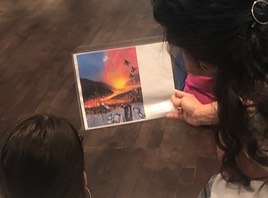
Think Like a Scientist: Developing Science Practices Through Visual Art
For Science Teachers | 3-6 Hours
For Grades 2-8
In this workshop, learn how to view the scientific world through the eyes of an artist! Explore ways to help students read visual art to develop their use of several science practices, such as careful observation, analyzing and interpreting data, and developing an explanation based on evidence. The elements of art are used to effectively teach the skills of observing and describing so that scientific conclusions and explanations become even more detailed. You don’t want to miss this opportunity to learn an engaging process that takes you from STEM to STEAM!

Image to Inquiry: Reading Art in the Secondary Social Studies Classroom
For Teachers | 3-12 Hours
For Grades 6-12
It can be difficult for students to comprehend social studies curriculum because the people, places, and events feel so far removed from their own lives—they have trouble relating. Often what’s missing is the background knowledge to create a meaningful connection to the content. Works of art are visual texts that students of all reading abilities can access. These secondary sources can be read to visually connect students to the content while efficiently building background. Once students have this connection they easily and quickly develop questions and motivation to actively engage in research and ownership of what they learn.
*Note: this can be offered as a workshop or a course. The number of sessions can be modified. Each workshop session is typically 2-3 hours in length.

Reading and Talking about Visual Art in the Early Childhood Classroom
For Teachers | 3-12 Hours
For Grades K-2
Students in grades K-2 are often emerging readers who are depending on images to provide visual cues to aide in comprehension. This workshop focuses on looking and talking about illustrations in fiction picture books before, during, and after reading to help students develop the skills of prediction, inference/drawing conclusions, sequence, and retelling a story.
*Note: this can be offered as a workshop or a course. The number of sessions can be modified. Each workshop session is typically 2-3 hours in length.

Lines and Shapes: Integrating Visual Art and Geometry
For Teachers and Math Specialists | 3 Hours
For Grades Pre K-2
Lines and shapes, concepts central to pre K-2nd grade mathematical understanding, are also building blocks of visual art. In this workshop, explore how students can construct and demonstrate their understanding of geometry through visual art. Teachers learn the basic vocabulary for identifying and describing various types of lines and 2-D shapes in works of art and create abstract drawings and cut-paper compositions that allow all types of learners to be creative and successful.

Let’s Write Like Artists! Drawing as Prewriting
For Teachers | 2 Hours
For Grades Pre K-2
Pre-emerging and emerging writers often draw pictures to communicate. In this workshop, learn how the most basic element of art–lines—can help your students draw more descriptively. First, learn the vocabulary for helping students identify and describe various types of line in works of art. Those skills are then applied to create more realistic figures in their own prewriting drawings. This workshop allows all types of learners to be creative and begin to write like artists!

Looking the Write Way: Visual Art and Poetry Throughout the Curriculum
For Teachers | 3-12 Hours
For Grades 2-8
Teachers working in today’s schools face a tremendous challenge: successfully engaging and motivating a classroom full of students with diverse backgrounds and abilities, with the pressures of standardized tests always looming on the horizon. This three-day institute has been developed to help teachers succeed in meeting that challenge through the creative power of visual arts and poetry.
In this workshop, participants are guided through a process to analyze art that teaches students the critical skills of observing, inferring, inquiring, and writing. This analysis becomes a springboard for writing as students discover there is so much to write about when they slow down and discover the power of observation. The work of art is ultimately synthesized as students use descriptive, carefully chosen words and various poetry tools to create vivid images that express thoughts and feelings through poetry.
Armed with this process of how to read art and respond through poetry, this strategy can be integrated throughout the curriculum to build background knowledge, teach content, generate points of inquiry for research, and assess understandings in social studies, science, and literature.The number of sessions can be modified.
*Note: this can be offered as a six hour workshop, a four session course, or a three day institute. Each workshop session is typically 3 hours in length.

Cut Paper: A Pathway to Creative Writing
For Teachers | 3 Hours
For Grades 2-12
The process of writing stories can be challenging for young authors. In this workshop, explore how students can use scissors, glue, and construction paper to create artwork that becomes the bridge between an unformed idea and a unique, descriptive story. Learn to use selected elements of art, such as shape, color, and space, to connect to story components (e.g., character, setting, events, main idea, and details). Participants will leave with workable, accessible tools for students to create ideas, think divergently and write creatively.
This workshop is led by Jamin Carter

Making it Stick: Cut Paper, Drawing and Memory
For Teachers | 3 Hours
For Grades 3-12
Memory is a powerful tool that can be enhanced through visual art. In this workshop experience how students can develop their own language of symbols that aid them in understanding, communicating and remembering important information. Based in drawing and cut paper strategies, students will be empowered to heighten their vocabulary, reading comprehension, brainstorming skills, and more.
This workshop is led by Jamin Carter
Puppetry Workshops

An Introduction to Shadow Puppetry
For Teachers | 3 Hours
For Grades Pre K-12
In this foundational workshop, participants learn shadow puppetry performance techniques, make-and-take their own shadow puppets for best-loved scripted stories, create their own shadow puppetry stages, and brainstorm curricular connections. By the end of the workshop, participants obtain both the skills and confidence necessary to successfully introduce this unique teaching strategy to their classroom communities.
Maximum number of participants is 32.

Shadow Stories: Exploring Story Elements Through Shadow Puppetry
For Teachers | 3 Hours or 6 Hours
For Grades 2-6
In this workshop, participants first learn about shadow puppetry as an art form, including performance and puppet-making techniques. They then explore story elements by creating original stories from a “Story Challenge Game.” Finally, they combine art form and content area by learning to faciliate the creation of hands-on shadow puppetry presentations that bring these original stories to life behnd the shadow screen.
Maximum number of participants is 32.

Shadow Play: Exploring Shadow Puppetry in the Early Years
For Teachers | 3 Hours or 6 Hours
For Grades Pre-K - 2
In this workshop, participants first learn about shadow puppetry as an art form, including performance and puppet-making techniques. They then discuss the reasons why shadow puppetry is such an effective teaching strategy within early childhood learning environments. Finally, they combine art form and content area by learning to facilitate hands-on shadow puppetry experiences that explore content across the curriculum.
Maximum number of participants is 32.

Shadow Science: Exploring the Sciences Through Shadow Puppetry
For Teachers | 3 Hours or 6 Hours
For Grades K-5
In this workshop, participants first learn about shadow puppetry as an art form, including performance and puppet-making techniques. They then learn about frameworks to explore historical time periods and historical events. Finally, they combine art form and content area by learning to facilitate the creation of hands-on shadow puppetry presentations that bring history to life behnd the shadow screen.
Maximum number of participants is 32.

Shadow Math: Exploring Mathematics Through Shadow Puppetry
For Teachers | 3 Hours or 6 Hours
For Grades K-5
in this workshop, participants first learn about shadow puppetry as an art form, including performance and puppet-making techniques. They then learn about frameworks to explore historical time periods and historical events. Finally, they combine art form and content area by learning to facilitate the creation of hands-on shadow puppetry presentations that bring history to life behind the shadow screen.

Bringing Literature and SEL to Life Through Shadow Puppetry
For Teachers | 3 Hours or 6 Hours
For Grades Pre-K - 6
In this workshop, participants first learn about shadow puppetry as an art form, including performance and puppet-making techniques. They then discuss the reasons why shadow puppetry is such an effective stategy when exploring Social Emotional Learning concepts. Finally,they combine shadow puppetry and Social Emotional Learning teaching objectives by learning to facilitate hands-on shadow puppetry experiences inspired by children’s literature that enhance SEL strategies in the classroom.
Maximum number of participants is 32.
Dance Workshops

Weather On The Move
For Teachers | 3 Hours
Grades 3-6
Combining his training as a pilot and a choreographer, Harlan Brownlee leads you through an interactive exploration of weather that you can take back to your classroom. Learn strategies that relate motions of the body and elements of dance to the structure of the earth’s atmosphere, cloud formations, and the dynamic exchanges of heat and pressure that create wind and weather conditions.
Maximum number of participants is 30.

Dances for an Expanding Universe
For Teachers | 3 Hours
For grades 5-8
Spinning planets, streaking comets, and shooting stars comprise this astronomical adventure that will propel students into orbit! This participatory workshop integrates dance with the characteristics and movement patterns of the planets and sun in our solar system. Learn ways to help students apply and demonstrate their understanding of the gravitational force that keep planets and moons in orbit by creating dance sequences based on objects in the solar system. You’ll enjoy this unique choreography experience!
Maximum number of participants is 30.

Words in Motion
For Teachers | 3 Hours
For grades 2-8
Working with the elements of dance, this workshop provides teachers an engaging approach for students to explore free-verse poetry and delve into the nuances of rich vocabulary. By composing free-verse poems and choreographing them into dances, teachers learn how to immediately apply movement structures and prosody to enhance the meaning of text and help students express their understanding of words and poems. Please come dressed in loose comfortable clothing and be prepared to move.
Literacy Components:
- Vocabulary: The purpose of the vocabulary instruction is to develop deep and sustained word meaning.
- Prosody: Prosody is referred to as “reading with expression.” It is the variation of tone used when speaking or reading aloud and the emphasis given to certain syllables in a word. Prosody is used to express understanding of words and poems.
Maximum number of participants 30.

Full STEAM Ahead!
For Teachers | 3 Hours
For Grades K-3
Choreography, like coding, is an algorithm, or a set of instructions. This kinesthetic professional development session is interactive as it merges coding and technology with physical activities and movement and leads participants through a process where they create a short simple dance that illustrates the connections. Teaching Artist, Harlan Brownlee introduce participants to movement strategies that can be immediately taken back to the classroom. This session demonstrates the connections between choreography, variables, and the algorithm and draws parallels to 21st Century learning skills, commonly referred to as the 4C’s of Creativity, Collaboration, Critical Thinking, and Communication.
Maximum number of participants 30.

Biome Boogie: Dances for Planet Earth
For Teachers | 3 Hours
For Grades K-12
The biodiversity of planet Earth is breathtaking, with an incredible range and variety of species. Starting with the Tropical Rain Forest as a biome for exploration and creativity, learn how to create various “Biome Dances” about the relationships that exist between plants, animals, and the environment. Take back to your classroom instructional movement strategies that help your students demonstrate their understanding of the complexity and interdependence that exists in the natural world.

Thinking Bodies – Moving Brains
For Teachers | 15 Hours
For Grades K-12
In this 15-hour seminar, Kennedy Center Teaching Artist, Harlan Brownlee leads participants through a series of arts integrated lesson plans utilizing dance and movement. As a result of this seminar participants will acquire a greater understanding of the elements of dance, learn how to create activities that integrate dance and movement into their daily lesson plans, and develop an appreciation for the engaging nature of movement as a tool to enhance effective teaching. Creating an artistic product contributes to a student’s ability to remember material and reinforces a student’s capacity to communicate and collaborate as well as think creatively and critically. Skills developed in the arts allow students to engage and persist in problem solving.
Maximum number of participants 30.

Dancing the Hero’s Journey: A Study of Self, Characters and Historical Figures
For Teachers | 30 Hours
For Grades K-5
Humans face obstacles and experience struggles daily. Great heroes throughout history and beloved characters in books have grown through adversity to create positive change. How can we engage students in the study of these figures in order to identify their traits and key details that led them to overcome challenges? In this engaging workshop, you’ll learn how creative movement aids the analysis of literature while simultaneously helping students to overcome fear and challenges. Students will dance their way through retelling key details of both real-life heroes’ journeys and fictional characters. You don’t want to miss this opportunity to join Focus 5’s Jessica DiLorenzo as she shows how to empower your students to inspire change by blending meaningful social emotional skills with the analysis and comprehension of texts.
Maximum number of participants 30.
Music Workshops
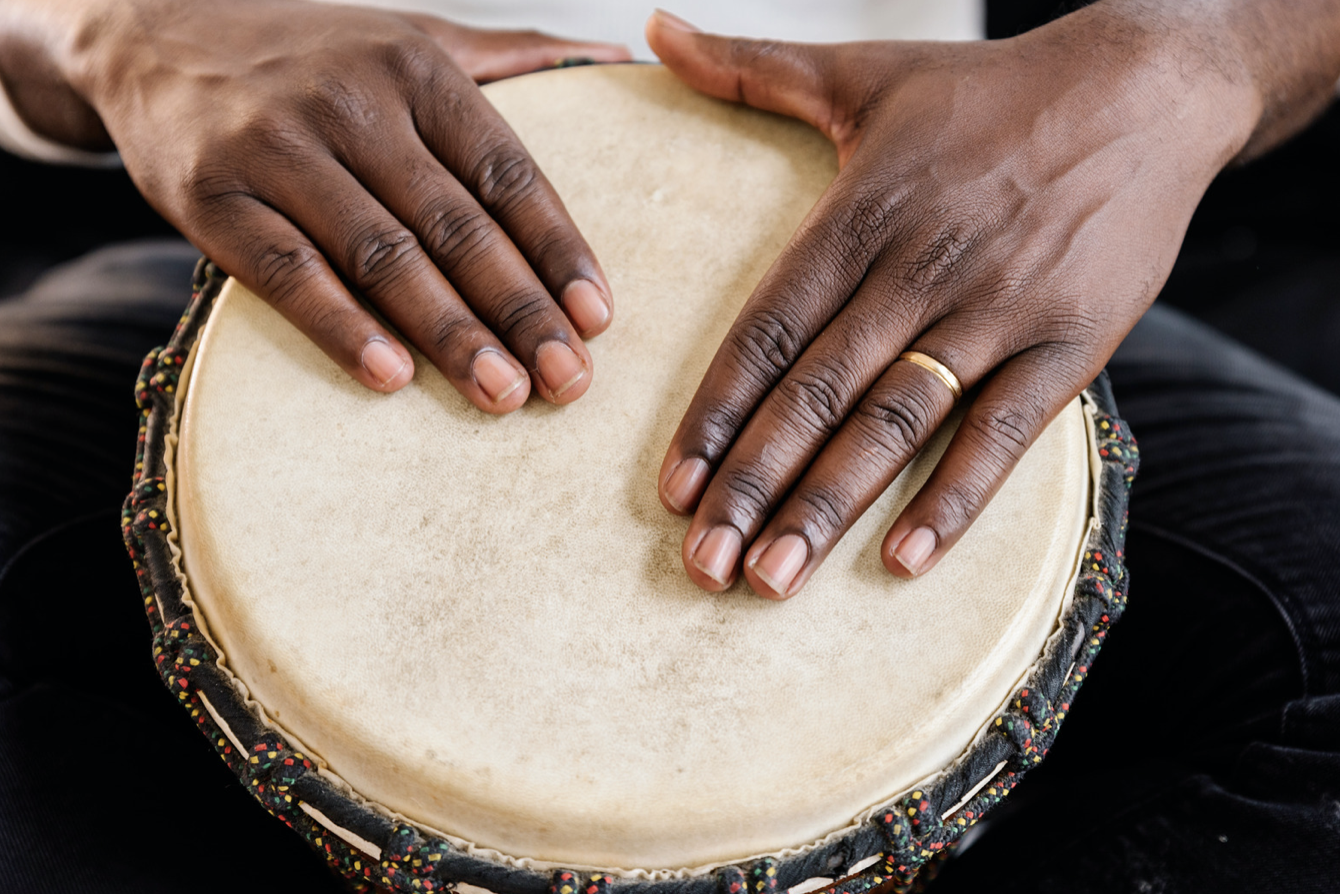
Building Reading Comprehension Through Sound and Rhythm
For Teachers | 3 Hours
For Grades K-8
Explore new paths to help students develop reading comprehension strategies and make connections between music and language. This session guides participants through a process to help students create a Soundscape – a way to retell the story that connects students to the story’s tone, mood, setting, and the characters’ culture(s). This learning process will help students create sensory images, use questioning strategies, develop inference skills, and determine importance.
Poetry Workshops

Poetry Title #1
For Teachers | 3 Hours
For Grades K-8
Explore poetry consectetur adipisicing elit, sed do eiusmod tempor incididunt ut labore et dolore magna aliqua. Ut enim ad minim veniam, quis nostrud exercitation ullamco laboris nisi ut aliquip ex ea commodo consequat. Duis aute irure dolor in reprehenderit in voluptate velit esse cillum dolore eu fugiat nulla pariatur. Excepteur sint occaecat cupidatat non proident, sunt in culpa qui officia deserunt mollit anim id est laborum.
Assessment and Documentation Workshops

Documenting Student Learning in the Arts
For Teachers, Art Specialists, Administrators | 2-3 Hours
For All Grades
Communicating what students have learned through arts-integrated instruction can be complex and challenging. How do we share the learning process or the depth of student understanding when a product or performance only shows a part of it? In this session, explore purposes, components, and formats for communicating arts-integrated instruction and student learning, and consider ways to align them to the needs of various constituencies, such as school administrators and parents.
A wealth of experience and authentic examples of documentation that demonstrate student learning in a variety of art forms and subject areas is shared in this workshop.
Extend the Experience with Part 2…
Focused on documenting student learning in the arts the session titled “Planning and Creaating Documentation” is 2-3 hours of instruction time.
School administrators, parents, and the field of arts integration need your help to develop a better understanding of the advantages of integrating the arts across the curriculum!
This follow-up session to “Documenting Student Learning Through the Arts” provides an opportunity for you to begin planning how to implement your own ideas for documenting your students’ learning. The workshop includes an examination of ways to organize information into a structure that tells a clear and concise story about the lesson’s objectives, process, and outcomes as well as a demonstration of how publications and digital narratives can be created using Microsoft Word and PowerPoint.

Arts Integration and Formative Assessment
For Teachers | 2 Hours
For All Grade Levels
In arts integration, students are engaged in a creative process to construct and demonstrate understanding through an art form. The teacher’s role is to guide/facilitate students through that creative process. How well are students navigating that process? Is the product they are creating hitting the mark? What should I do next? These are all questions teachers ask themselves. The answers are found in formative assessment, or assessment for learning. This session, along with an example lesson, examines and demonstrates how teachers use formative assessment in arts integration.
Documentation Examples
Documentation is typically created in three formats—displays for a wall, publications that can be copied for others and/or posted on websites, and digital narratives/stories.
Visual Art & Geometry
By analyzing the work of Russian artist Wassily Kandinsky, students developed math skills of identifying, classifying, and describing the shape, size, color, and location of geometric figures. They also developed visual art skills of identifying line, color, and shape and spatial relationships. All the knowledge and skills gained through the analysis of Kandinsky’s art were then applied as students created class mural and individual collages.
Tableau, Reading, & Social Studies
After Martin’s Big Words by Doreen Rappaport was read aloud to 3rd grade students, they summarized the major events of the text to express their understanding of how Martin Luther King, Jr. worked to defend equal rights for all people. They created a tableau (frozen picture) for each major event, and then connected the events together to create a “Tableau Slide Show.” This lesson was one hour (including the reading of the book).
Dance & Science
Third grade students explored concepts and vocabulary shared by dance and science—energy, patterns, and cycles—to learn about dance and the relationship between the sun and Earth. They applied their understandings by creating a dance and reflecting on their experience. This lesson was completed in three sessions (45-60 minutes each) including the creation of the dance, rehearsal, and performance.
Puppetry & History
Puppetry: A Key to Making Inferences from Literature and History
Fourth grade students created puppets, wrote and performed inner monologues to construct and demonstrate their understanding of inference and historical figures. This process was completed in five lessons (60 minutes each).
Tableau & History
Fourth grade students read and discuss information about abolitionists and process and demonstrate their understanding by creating a tableau. They analyze slavery themes in visual art, express their reactions by writing poetic scripts, and finally synthesize their understandings into a short theatrical performance. They end with a reflection about their experience. This lesson was 3 sessions (45-60 minutes each).
Visual Art & History
Fifth grade students created portraits through a print-making process to demonstrate their understanding of Nat Turner, Harriet Tubman, and/or John Brown. This lesson (including research) was 5 sessions (60 minutes each).
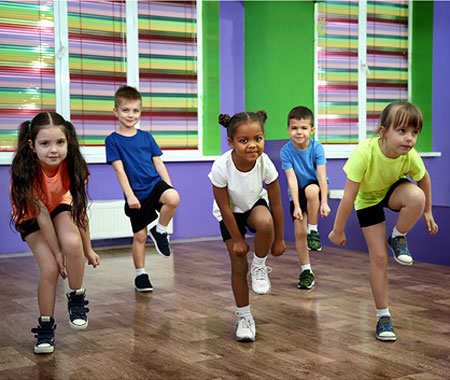
DANCE Documentation Examples
Kindergarten
Patterns in Math and Dance
1st Grade
Creative Movement and Science
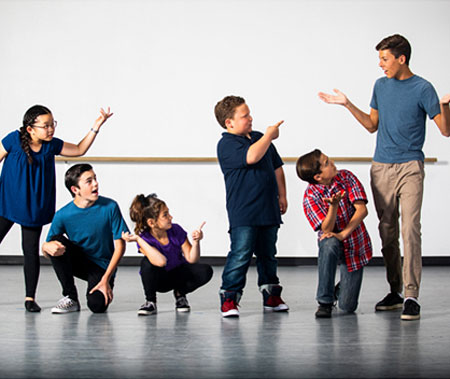
DRAMA Documentation Examples
Kindergarten
Storytelling, Science, Oral Language
3rd Grade
Drama and Reading Comprehension
Kindergarten
Storytelling, Science, Oral Language

VISUAL ART Documentation Examples
1st Grade
Visual Art and Geometry
4th Grade
Visual Art and Geography
2nd Grade
Reading Painting and Writing Poetry
Let's Get The Ball Rolling!
Drop Us a line...
We are incredibly excited at Focus 5 about the chance to work with you and help you integrate arts into your curriculum.
It's powerful, it's accessible, and its effect on students is profound!
